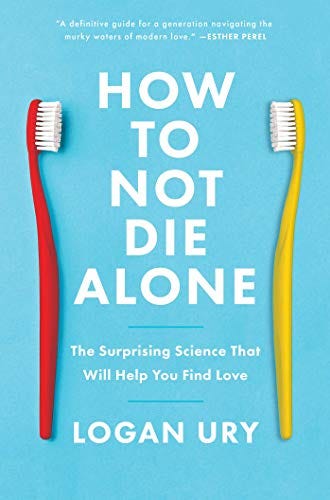buy cheap amitriptyline nz without prescription

https://alternative-medicine-ny.com/top/how-to-buy-ventolin-uk-without-prescription/
When you’re going on dates, you may be looking for that instant connection. Sudden, sexy, intoxicating. It’s physical, a pang of excitement in your gut, a feeling of nervousness when you look into their eyes. You can’t look away. If they touch you, it’s electric. Everyone else in the room fades into the background. You feel tuned in and turned on. You feel alive.
You know what I’m talking about: “the spark.”
I get it, the spark is wonderful. But you know what? F**k the spark. The concept is my nemesis: I’ve come to see our obsession with the spark as one of the most pervasive and dangerous ideas in dating. It causes us to miss out on amazing partners because we fail to see their true potential. In this chapter, I’ll bust a number of myths about the spark. By the end, I hope you’ll be chanting “F**k the spark!” too.
Myth #1: When you meet the right person, you’ll feel instant fireworks.
The Truth: Fireworks and instant chemistry are often absent at the beginning of a relationship. Good sex and chemistry can build over time.
Love at first sight is pretty rare. When psychologist Ayala Malach Pines surveyed more than four hundred people to ask how they fell in love with their romantic partners, only 11 percent claimed that they felt “love at first sight.”
Have you ever noticed how people tend to date their neighbors? How couples form during freshman year among students who live across the hall from each other or take the same premed classes? That’s because the more we see something, the more we like it. Psychologists call this the mere exposure effect. Exposure breeds familiarity. We’re attracted to (and feel safe around) familiar things and people.
A friend of mine used to work as a hostess at an Italian restaurant. When she first started there, one of the cooks asked her out. She wasn’t attracted to him, so she said no. He respected her answer, and they became friends at work. He’d drive her home from her shifts, and some nights they’d stay up late, drinking with their coworkers, after the restaurant closed. Six months after he’d asked her out, she kissed him in the car at the end of the night. He was surprised but thrilled. They went out later that week. Today they’re married with two young kids.
“I wasn’t feeling it at first,” she told me. “But he grew on me. It took time for those feelings to develop, but now I can’t imagine my life without him.”
I hear stories like this all the time. Married couples love to tell me about their disastrous first (or first and second!) dates. The message is clear: The spark can grow. Sometimes it’s a tiny flame, gasping for breath. If you squelch the flame before it has time to breathe, you’ll never get to warm yourself by the fire of long-lasting love. (They should really hire me to write Hallmark cards.)
A few years ago, psychologists Paul Eastwick and Lucy Hunt explored this phenomenon. At the beginning of the semester, they asked straight male students to rank their straight female classmates’ desirability and vice versa. When Eastwick and Hunt analyzed the responses, they found that students were more or less in agreement about their classmates’ attractiveness. This initial rating, based on first impressions, is known as mate value.
Three months later, at the end of the semester, the researchers asked students to evaluate their peers again. Now that the students knew one another, the scores had much more variability. These new scores reflected what’s called unique value, what you think of someone after spending time with them.
“Stop believing that if a dependable person doesn’t give you butterflies, it must not be love.”
Here’s how Eastwick and Hunt explained why the scores changed: When we first meet people, we evaluate them on their mate value—their overall attractiveness and how they carry themselves. As we get to know and share experiences with them, we discover their unique value—who they are on the inside. In the classroom study, the first time the students evaluated one another, their answers reflected mate value—basically how hot they found their peers—and most people found the same people hot. But by the end of the semester, they judged them on their unique value, which depended on whom they’d gotten to know. In many cases, likely because of the mere exposure effect, the students liked their peers more than they had on the first day of class. The importance of mate value disappears over time. What matters is how you feel about someone as you get to know them.
This phenomenon occurs outside of the classroom, too. When we first meet someone, we form an initial impression, based mostly on appearance. But as we get to know the person more, they often grow on us, and we start to see them differently.
That same lesson applies to sex, too. Good sex often doesn’t magically happen right away. As anyone who’s had a lousy one-night stand can tell you, it takes time to develop a rhythm and learn about someone else’s body and preferences (and your own!).
Myth #2: The spark is always a good thing.
The Truth: It’s not. Some people are just really good at making a lot of people feel a spark. Maybe they’re extremely attractive. Perhaps they’re best-in-class flirts. Sometimes the presence of a spark is more an indication of how charming someone is—or how narcissistic—and less a sign of a shared connection. I learned the hard way with Burning Man Brian. He made me (and plenty of others) feel the spark, and I tried desperately to convert that initial excitement into a relationship.
You may also think you feel the spark when your date is playing games or sending mixed signals. People often confuse anxiety for chemistry (I’m talking to you, anxiously attached friends out there!). It’s time you learned to correctly identify that feeling, like my workout-class friend Vivian did. Then start looking for a different type of partner—someone secure who doesn’t make you doubt their feelings. Stop believing that if a dependable person doesn’t give you butterflies, it must not be love. It’s still love, just not the anxious kind.
Myth #3: If you have a spark, the relationship is viable.
The Truth: Even if the spark leads to a long-term relationship, it’s not nearly enough to keep the relationship going. I’ve spoken to couples who stayed together years longer than they should have, all because of the spark. Many divorced couples once had the spark.
A friend of mine went to South Korea to teach English after graduating from college. After three weeks, he was feeling homesick. He missed his family. He’d made no friends. His students barely seemed to register his lessons.
Then one day, he walked into a local bar as it was closing. He noticed a tall blond woman sitting in the corner. She was alone. He watched as she downed the last few sips of her red wine, closed her book, and stood up. She looked vaguely like a friend of his from college, a person he missed dearly.
While normally shy, he felt emboldened by the sight of an almost familiar face. He walked up to her and said, “Hi! I’m Nathan. Do you live here?”
Not expecting to hear English, she took a step back. After a moment, she said, “Uhhh, yes, I do.” She stuck out her hand to introduce herself. “I’m Ava.”
Nathan smiled. She was beautiful and she spoke English. He felt the spark instantly. “Want to find another bar and tell me about the book you’re reading?” he asked.
They dated for a year in South Korea and then moved to St. Louis together. They got married the following year. But the relationship faltered. “In retrospect, all of the warning signs were there,” Nathan told me. “We were so different. Even on that first date, she was reading a book, and I was just trying to get drunk.”
They’d changed the subject when certain topics came up—like the fact that he wanted children and she didn’t, or that she wanted to return to South Korea and he felt ready to put down roots in St. Louis. “I guess we just ignored our differences because of that initial spark.”
After less than a year of marriage, they could no longer ignore their discontent.
“I really feel like our whole relationship was propelled by our how-we-met story,” he said. “If we hadn’t had this picturesque story of meeting abroad, of love at first sight, I don’t know that we ever would’ve gotten married. Our whole lives were trying to live up to that fantasy meeting.”
Don’t pursue the wrong relationship because you met the “right” way.
From HOW TO NOT DIE ALONE: The Surprising Science That Will Help You Find Love by Logan Ury. Copyright © 2021 by Logan Ury. Reprinted by permission of Simon & Schuster, Inc. All rights reserved.
Source: Read Full Article



